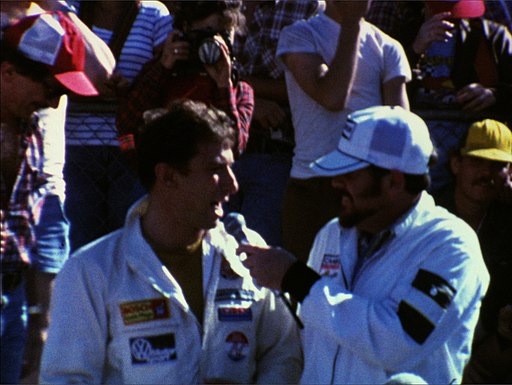 |
| Werner Erhard at "Breakthrough Racing" event, Sears Point Raceway, 1979 |
Yeah, it's not Being There, even though it may have some aspects of that after ECT. It's way more like Household Saints.
I haven't figured out what exactly happened but I think your "motivators" make sense. There's probably a very human explanation, like loneliness. I also think that Knology, like a lot of sensitivity-awareness group seminars, would claim to welcome people growing deeper in their own religions of origin, because, as people like Werner Erhard figured out, it's far more powerful to control the context than it is to control the content (e.g. Scientology). I say that Farthington would have affirmed Arthur's childhood visions (content) in the interest of providing him a frame for understanding those visions (context). Will's regimen/tactics would definitely have diminished Arthur's vision by the point he arrives in Tokyo; perhaps in his desolation Arthur sees a way of returning to the deep communion he once felt. Now that it's no longer effortless, Knology seems to provide the clearest pathway. Knology disclaims any status as a religion, saying it only desires to see people fully enlivened in their relationships, their job, their places of worship, blah, blah.
In Erhard's words
The other main difference between est (Erhard Seminars Training) and Scientology lies in the treatment of knowing. Ron Hubbard seems to have no difficulty in codifying the truth and in urging people to believe it. But I suspect all codifications, particularly my own. In presenting my own ideas, I emphasize their epistemological context. I hold them as pointers to the truth, not as the truth itself.
I don’t think anyone ought to believe the ideas that we use in est. The est philosophy is not a belief system and most certainly ought not to be believed. In any case, even the truth, when believed, is a lie. You must experience the truth, not believe it.All sorts of doctrine in that statement, but ostensibly only setting up an "epistemological context."
No comments:
Post a Comment